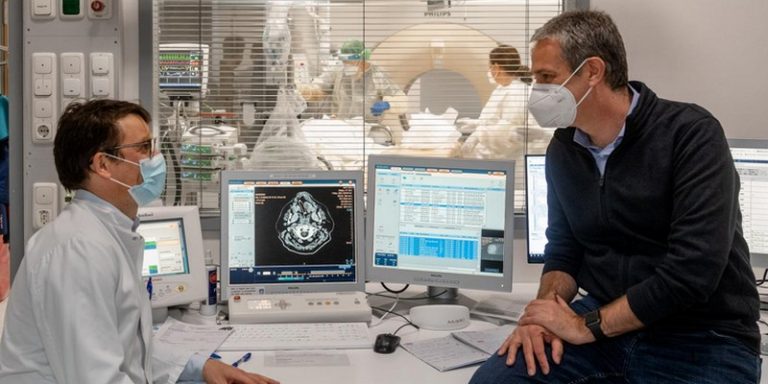
AI systems in the medical sector are numerous: they are exploited to improve the process of mesothelioma diagnosis, to detect cardiac arrhythmias or to find a treatment for Huntington’s disease . However, for these models to work, it is necessary to obtain protected medical data. To address this, a research team from the Technical University of Munich (TUM), Imperial College London and the OpenMined organization has developed a technology that ensures the protection of patients’ personal data.
Facilitating the protection of health data
It is common practice for radiology centres to share patient information by sending copies of their database. These are anonymised and labelled with a pseudonym. Unfortunately, some of these processes are not 100% reliable when it comes to data protection, noted Dr. Daniel Rueckert, professor of AI in healthcare and medicine at TUM.
To address this problem, an interdisciplinary team of TUM staff worked with researchers at Imperial College London and OpenMined to propose an AI-based diagnostic aid solution that ensures data privacy. It compiles a combination of radiological images. The tool was the subject ofa paper by 14 researchers including Danier Rueckert and lead authors Alexander Ziller of TUM’s Institute of Radiological Diagnostics and Interventions, also a professor of AI in healthcare and medicine, and an OpenMined affiliate, and Dr Georgios Kaissis of TUM’s Institute of Medical Informatics, Statistics and Epidemiology and the project leader.
Ensuring data privacy through federated learning
To develop the algorithm, the researchers used federated learning. Models are trained in different hospitals using their own data, and the result of these trainings is consolidated into a single model, thus avoiding data transit.
In order to avoid identifying the institutions where one of the algorithms has been trained, the team exploited three techniques:
- Application of secure aggregation: the research team combined all the algorithms in encrypted form. They were not decrypted until all participating institutions had trained their models.
- Ensuring differential privacy: preventing individual patient data from being separated from data records.
- Consideration ofstatistical correlation: these correlations can be extracted from the data records. Individual person data cannot be extracted.
Fostering cooperation between medical institutions
Professor Marcus R. Makowski, head of the Department of Diagnostic and Interventional Radiology at TUM’s Rechts der Isar Hospital, said of the accuracy of his models in aiding diagnosis:
“We tested our models with specialist radiologists. In some cases, the models showed comparable or better accuracy in the diagnosis of various types of pneumonia in children.”
Another study that made it intoa publication authored by Georgios Kaissis, Marcus R. Makowski, Daniel Rückert and Rickmer F. Braren, pointed out that the combination of the latest methods exploited in data protection could facilitate cooperation between medical institutions.
The use of AI can, according to the researchers, overcome ethical, legal and political obstacles. All of the scientists involved in the research say that their new technology can bring about an important advance in digital medicine, while respecting data protection issues.
Note that this use of Federated Learning in healthcare is not a first, since companies such asOwkin, the holder of the Substra project, routinely use this approach.
Translated from IA en Santé : Les chercheurs misent sur le federated learning pour la protection des données médicales









